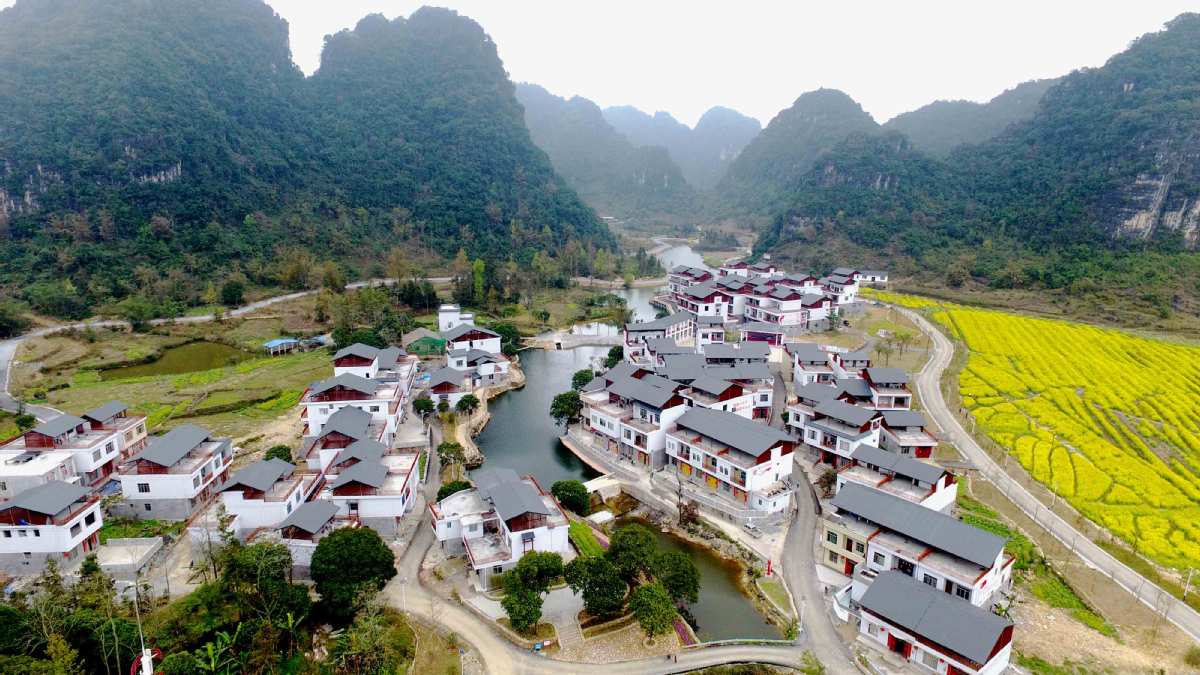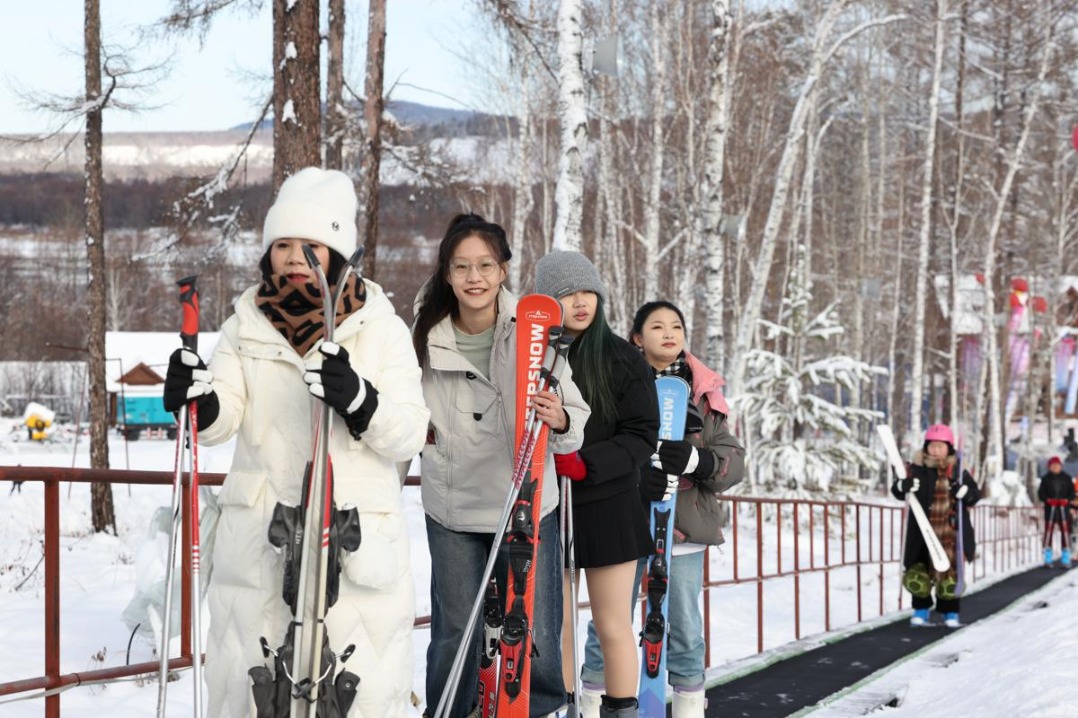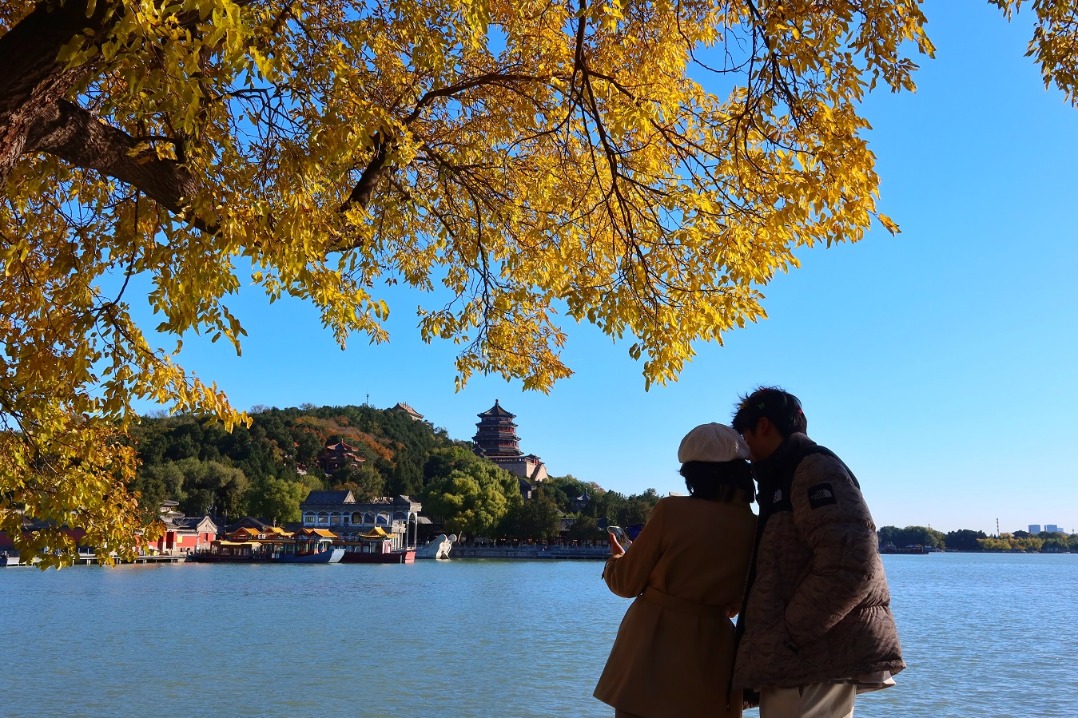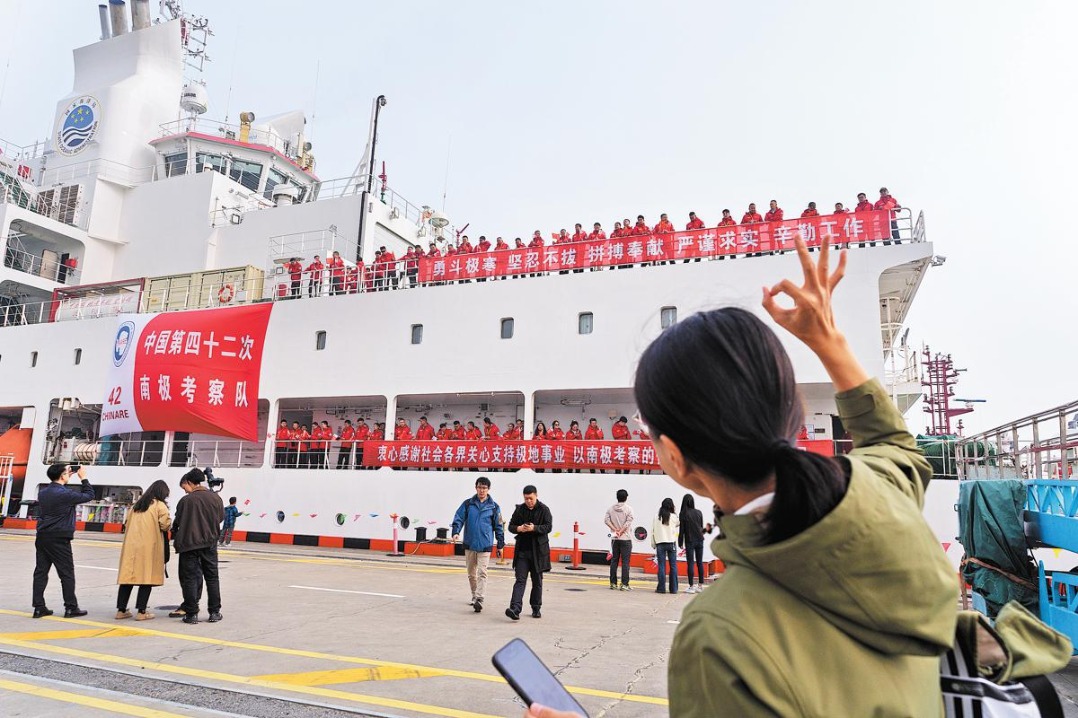Mango growers enjoying fruits of their success


A city steeped in revolutionary history is cultivating agricultural produce that is significantly changing people's lives
Today, Baise, a city in South China's Guangxi Zhuang autonomous region, is no longer only known as a crucial former revolutionary base where Deng Xiaoping, "chief architect" of the reform and opening-up policy, and other great leaders started the Baise Uprising against imperialism and feudalism in 1929.
That year, they founded the Youjiang Revolutionary Base in the city, and the following year, Deng led the Longzhou Uprising and established the Zuojiang Revolutionary Base.
The two bases covered an area of more than 50,000 square kilometers and involved more than 1 million people, according to Wang Changwen, a senior official with the Baise Uprising Memorial Hall, which opened in 1999.
"They were among the nation's most prominent revolutionary bases at the time," Wang said, adding that the uprisings ignited the people's desire for freedom and emancipation.
Ma Gao, a researcher at the memorial hall, said those early revolutionary activities left a host of valuable Red cultural heritage items and spiritual wealth for the locals in Baise.
Over the past 70 years, people of various ethnicities in the city have continued to follow the leadership of the Communist Party of China and strive for prosperity through socialism with Chinese characteristics.
Guangxi sits in the subtropical zone, and its unique geographical location and climate mean the land is fertile and highly suitable for the cultivation of a rich range of fruit.
In 2015, mango cultivation in Guangxi surpassed that of Hainan province, ranking it number one in China. Two years later, mango cultivation in the autonomous region accounted for about 35 percent of all such activity nationwide.
Meanwhile, in 2019, Mangoes accounted for about 4 percent of Guangxi's total fruit production and for 21 percent of the production of tropical fruit in the autonomous region. Since the 1980s, Baise has used mango cultivation as a pillar industry to revitalize the economy and improve local lives, especially for people living in former revolutionary areas.
The city's Youjiang district and Tianyang and Tiandong counties are renowned for their mangoes, while the locally grown fruit has become a national brand during the past three decades of industrial development and played a positive role in alleviating poverty.
In 2014, the Baise government decided to step up efforts to develop the mango industry and raise rural incomes.
By 2016, the city's mango plantations covered 80,000 hectares, the biggest such plantations nationwide, according to local authorities. By the end of 2019, Baise's plantations covered an area of 86,000 hectares, with annual production of 627,400 metric tons and total production value of 4 billion yuan ($608.5 million).
The areas were spread across more than 490 villages in the city and worked by more than 123,000 poverty-stricken residents.
Baise mangoes are seen at major fruit markets every summer, bringing the residents extra income.
"I believe the mango industry will help us totally eradicate poverty and become rich," said Mo Wenzhen, a resident of Nongjiao village in Baise.
Mo, in his early 70s, moved to Nongjiao in 1987, along with fellow residents of Shangxing, a village hidden in the depths of the mountains.
He rented 30 hectares of fallow land to grow mangoes, and in 2017, his family's annual per capita income reached more than 8,000 yuan, far higher than the 152 yuan they earned before relocating. Meanwhile, per household incomes of other former Shangxing residents ranged from 100,000 to 200,000 yuan a year.
In Dongda village, Tiandong county, to the west of Nongjiao, 51-year-old Li Wenshe owns a 20-hectare mango orchard. In 2011, Li, who is a senior village official, led the establishment of a mango cooperative.
Expert guidance
He received expert guidance when he was considering cutting down his mango trees in 2000. His produce wasn't selling well, which meant he was losing money, but a fruit plantation expert sent by the county authorities taught him grafting techniques to develop new varieties of mango.
After study and investigation, Li picked up the technique and began growing new varieties such as Guiqi and Jinhuang, which quickly became popular and their price rose to several times that of the old varieties.
"To develop the mango industry, we must rely on science and technology," Li said.
He has the management of mango plantations down to a fine art, so he has significantly raised his yields by pruning branches, preserving moisture and fertility, and employing eco-friendly cultivation techniques.
Having tasted the benefits, Li rented three more plantations covering a total 76 hectares with the support of local government.
His mangoes have made their way across the country, including to Shanghai and Beijing. In 2011, Li set up a mango cooperative and brought together scattered growers to scale up production.
The move helped more than 200 rural households improve cultivation methods and raise incomes. By 2018, the cooperative's plantations covered 266 hectares, and the annual per capita income of the 156 members was 150,000 yuan.
To optimize the quality of Baise mangoes, the city has been assessing and growing new varieties that have adapted well to the local climate and soil conditions.
To date, Baise has cultivated more than 30 mango varieties, some of which are already on sale.
The development of the road and high-speed rail networks, e-commerce and logistics have given Baise's mango sales a shot in the arm.
In the old days, fruit dealers from outside the autonomous region were unwilling to take local mangoes because of the risk that they would go off during long journeys, according to Huang Guodi, an expert with the Guangxi Subtropical Crops Research Institute. Now, the problem no longer exists. "E-commerce sales are very fast," Huang added.
Last year, "Baise Mango" was added to a list of protected geographical indications that are mutually recognized by China and the European Union.
That has led the city's mango growers to become optimistic about the future, saying the move has opened a channel for their produce to enter the EU market and boost sales across the world.
- Shanghai Disney Resort reaches 100 million visitors
- Xinjiang's desert poplar forests shine with autumn tourism
- China's northernmost city welcomes first visitors with extended ski season
- Tianshan: A Story of Canals inspires youth to aid Xinjiang
- Seminar seeks to help developing countries modernize agriculture
- China ranks 35th among academic IELTS test takers in 2024-25





































